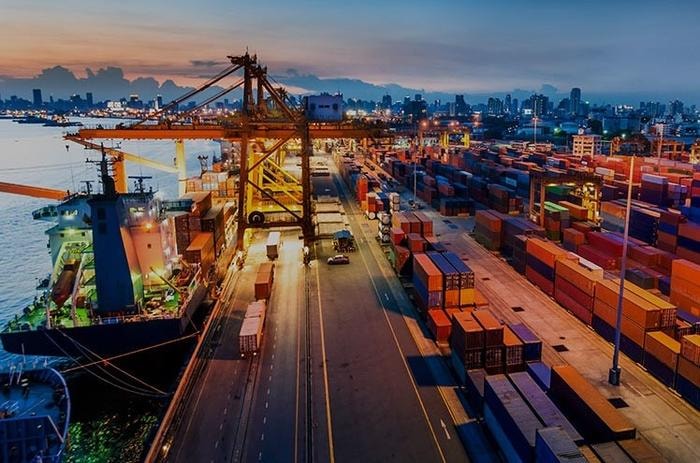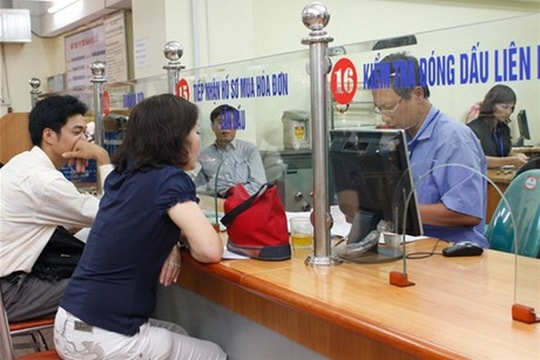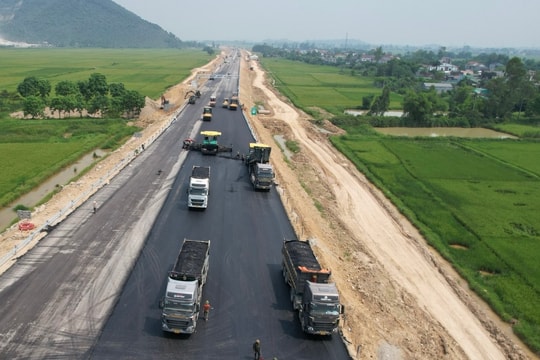Why does Vietnam's logistics industry still only contribute 2-3% to GDP?
According to experts, the total value of Vietnam's logistics market can reach 25% of the country's GDP. However, the actual contribution of this sector to GDP is only about 2-3%. Why is there such a big gap between potential and reality?
First of all, it must be admitted that the labor cost of the domestic logistics sector is much more expensive than the general level in the world. The Vietnam Chamber of Commerce and Industry (VCCI) stated that to transport a container of goods over a distance of more than 100km on a very convenient route, the cost is about 3 times higher than the same container transported from China or South Korea to Vietnam.
With such costs, it proves that Vietnam does not have an effective service supply chain, or it can be assessed that the scale of our logistics industry is still too fragmented, causing the cost to increase many times. Meanwhile, according to the assessment at the Vietnam Logistics Forum, domestic logistics enterprises are currently having great difficulty competing with international enterprises.
Of the world’s top 30 freight forwarding corporations, 25 have entered the Vietnamese market, accounting for 75% of the market share, mainly in “lucrative” sectors that bring high added value. On the contrary, with the remaining small and difficult 1/4, domestic enterprises are “up and down”, “fighting” for every small opportunity.
 |
| According to the Vietnam Chamber of Commerce and Industry (VCCI), the cost to transport a container of goods over a distance of more than 100km on a very convenient route is about 3 times higher than the cost of transporting the same container from China or South Korea to Vietnam. |
Small market share and low added value have caused the cost of logistics services in Vietnam to be assessed as being too high. Chairman of the Vietnam Logistics Services Association (VLA) Le Duy Hiep assessed that domestic enterprises find it very difficult to compete with foreign enterprises due to the lack of a common system worldwide. This is the main reason why Vietnam's logistics services only account for 25% of the domestic market share.
Not only that, the capacity of Vietnamese logistics enterprises is extremely limited because the quality of staff does not meet the demand. Among 1,300 domestic enterprises, up to 93-95% of workers are not properly trained, but mainly work in small supply chains such as delivery, warehousing, bill of lading processing, etc.
Economic experts all agree that domestic enterprises without close connections create opportunities for foreign enterprises to exploit and squeeze prices. Experts point out that, along with the weakness in internal capacity of enterprises, the logistics industry also lacks a macro vision, leading to ineffective logistics business activities.
Without a breakthrough in development policies and appropriate human resource training programs in the current context, it will be difficult to see any changes in both the quality and structure of the domestic market share in the future. The most positive signal is that in the coming time, the Ministry of Industry and Trade will invest more in logistics centers and these centers will be established in places with the greatest demand.
| RELATED NEWS |
|---|








